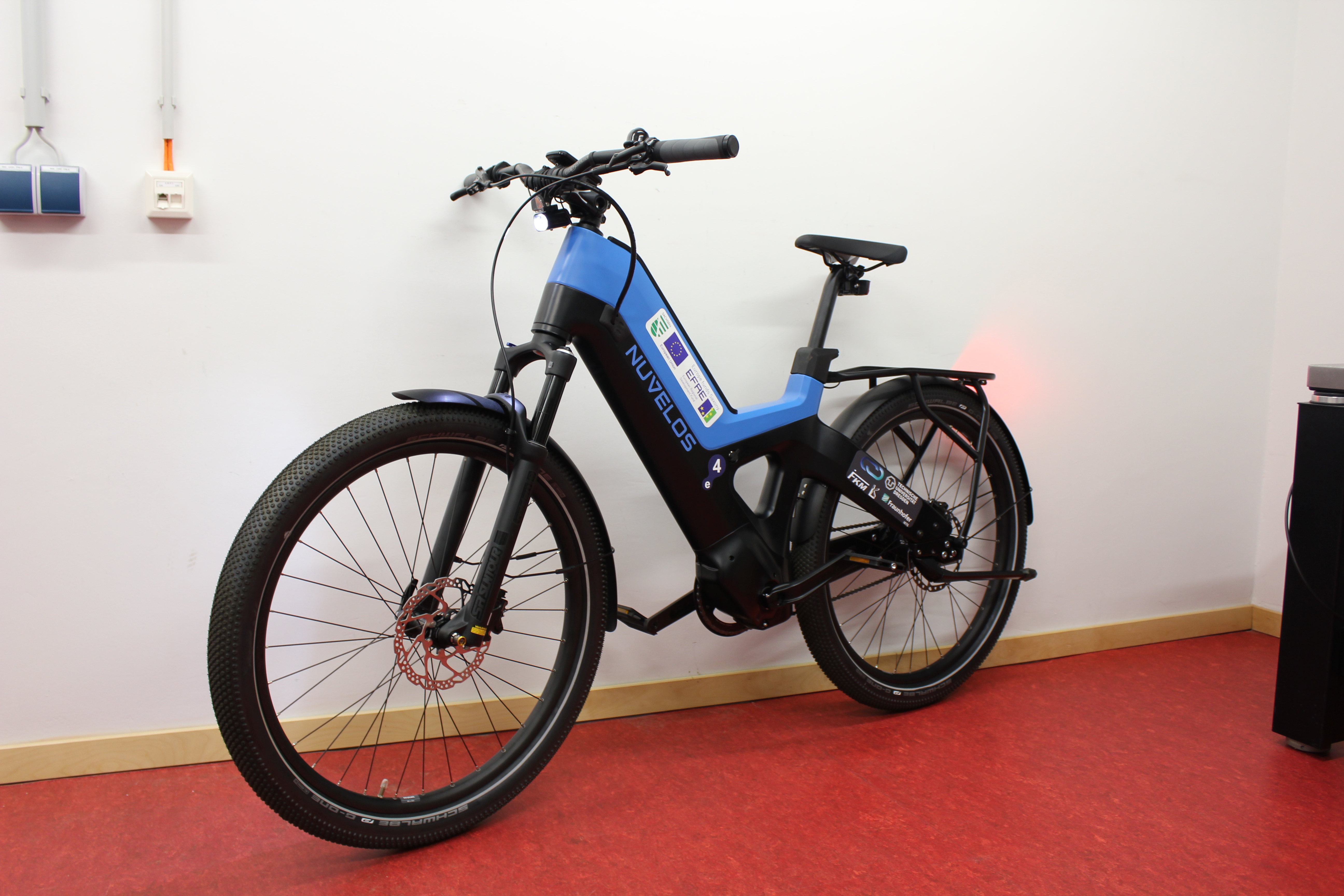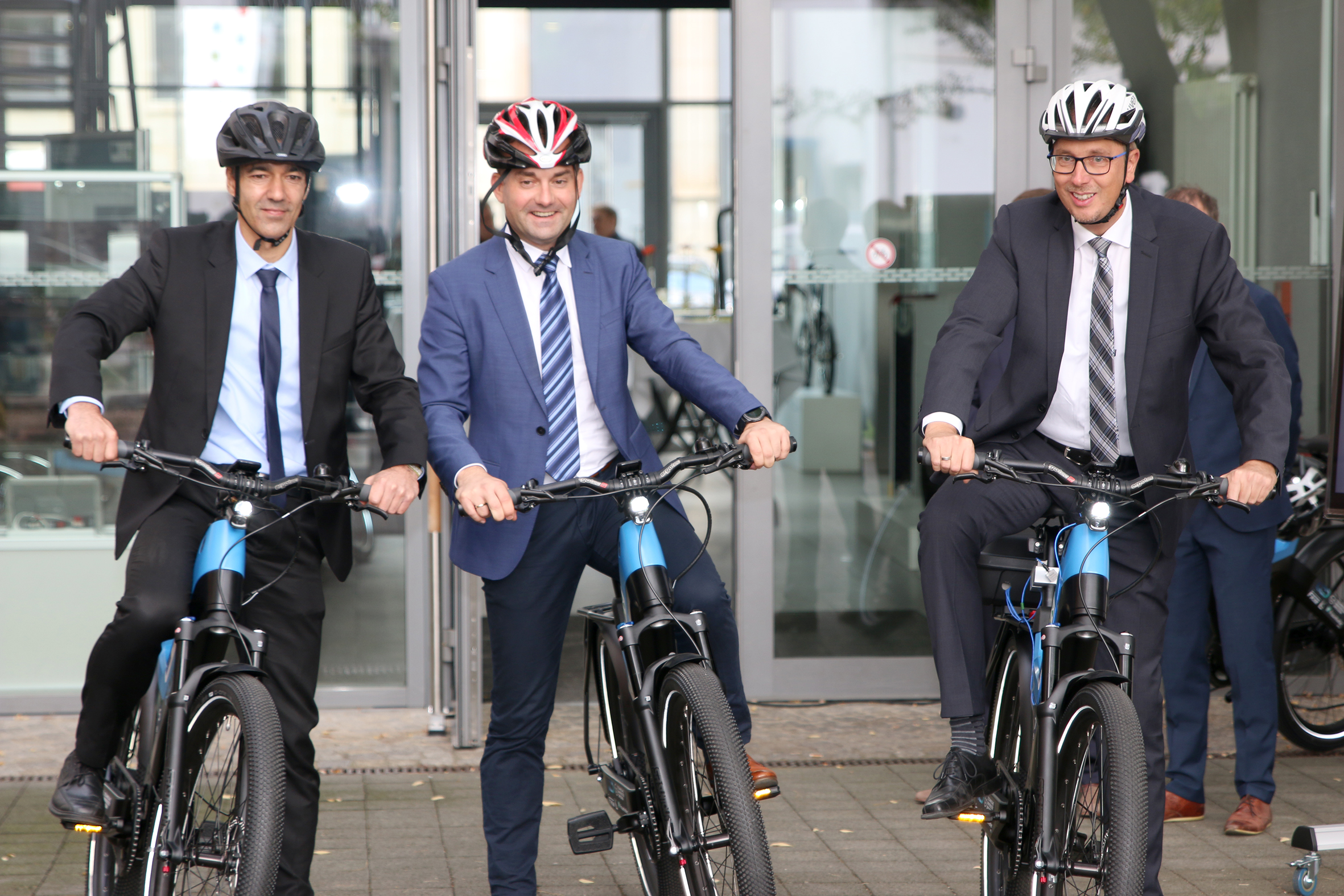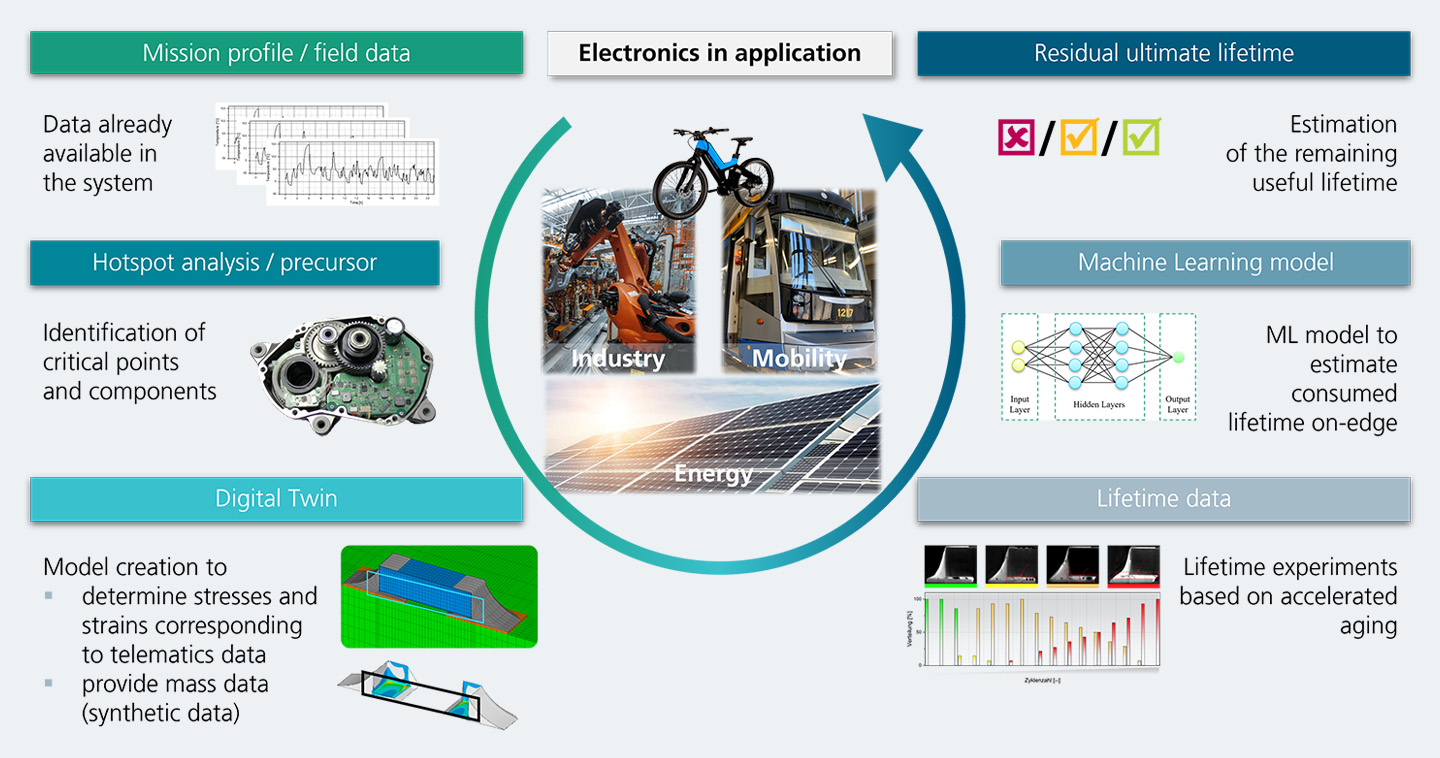Will the e-vehicle soon plan its own maintenance appointments?



Research: The aim of the "ePredict" research project was to develop basic digital methods that can be transferred to other engineering problems to monitor highly integrated mechatronic systems and increase their reliability. In short: can artificial intelligence (AI) be used to enable a system to predict its own remaining service life? The project consortium, which consisted of the Institute of Lightweight Engineering and Polymer Technology (ILK), the Institute of Solid Mechanics (IFKM) - both institutions of Dresden University of Technology - and the Fraunhofer Institute for Ceramic Technologies and Systems IKTS, was dedicated to this goal.
A fleet of e-bikes with a thermoplastic frame construction, which the ILK helped to develop in previous research projects, served as the test object. A large amount of measurement data on thermomechanical and electrical stress was recorded, stored in a data cloud, and analyzed using artificial intelligence methods to predict the condition and service life. At the same time, model-based simulations of the bicycle frame and key electronic components were created. The results were used to expand the experimental database, e.g., regarding untested riding conditions and extreme situations.
In the end, the stresses acting on the electronics could be predicted in real time with a deviation of ±5 percent using a small amount of sensor information, such as the temperature of the motor control board. Using component-specific service life models, these stresses can be translated into consumed service lives and remaining useful lifetime can be predicted.
Most important results:
- Real-time prediction of damage in solder contacts is possible, which could be shown on the demonstrator e-bike.
- A closed chain for collecting field data/mass data is available.
- A database with condition data from the e-bike and electronics has been created, into which data continues to flow.
Project period: August 2019 – June 2022
Project partners: Dresden University of Technology, Institute of Solid Mechanics (IFKM) and Institute of Lightweight Engineering and Polymer Technology (ILK)
Funding agency: Sächsische Aufbaubank – Förderbank – (SAB)
Funding: European Union funding from the ERDF fund

